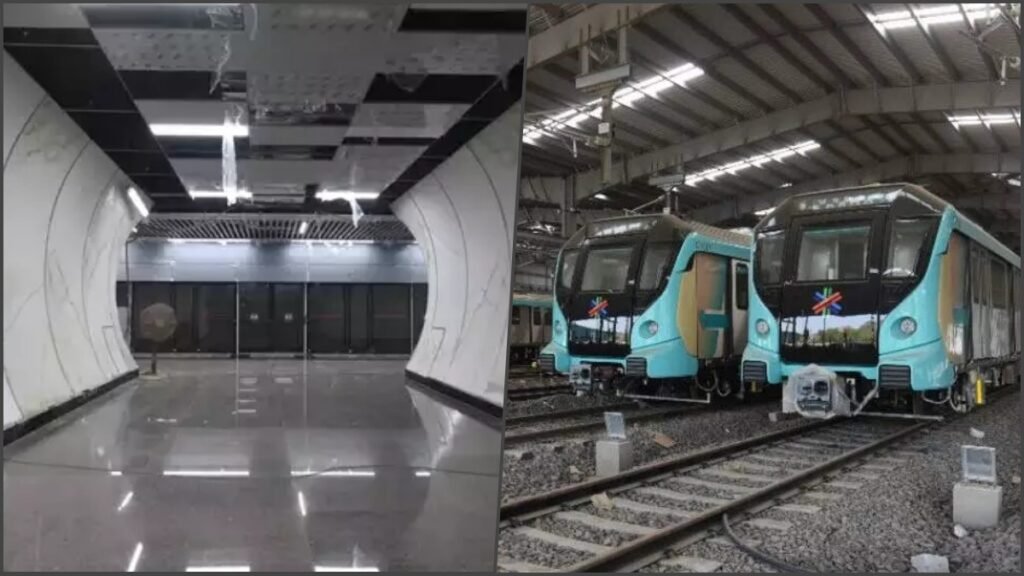
Mumbai : The long-awaited day has finally arrived! After a decade of anticipation, Mumbaikars will witness the inauguration of the city’s first fully underground metro line. Prime Minister Narendra Modi will officially launch the Colaba-Bandra-SEEPZ Metro Line 3, marking a significant milestone in Mumbai’s urban transport history.
A Grand Inauguration by the Prime Minister
Prime Minister Narendra Modi will inaugurate the 12.44-kilometer stretch between Aarey and Bandra Kurla Complex (BKC) today. This event not only celebrates the completion of a major infrastructure project but also introduces several new station names to the city’s metro map. Notably, Bandra Metro Station has been renamed Bandra-Kurla Complex (BKC) Metro Station, Domestic Airport Metro Station is now Chhatrapati Shivaji Maharaj International Airport T1, and International Airport Metro Station has been renamed Chhatrapati Shivaji Maharaj International Airport T2.
Innovative Construction Techniques
All seven stations on this new Aqua Line have been constructed using the New Austrian Tunneling Method (NATM), a technique chosen due to Mumbai’s space constraints. This method involves cutting and extending tunnels in a tube-like shape, allowing efficient use of limited space.
Metro Operations and Services
The Mumbai Metro-3 project will feature nine trains, providing 96 round-trip services daily. Operating hours are from 6:30 AM to 10:30 PM on weekdays and from 8:30 AM to 11:00 PM on weekends. Ticket prices range from ₹10 to ₹50, and women captains will be appointed to operate these trains. Initially, passengers will have the option of paper tickets and QR tickets.
A Journey Through Time
The foundation stone for this metro corridor was laid on August 26, 2014, by then Chief Minister Prithviraj Chavan and then Union Urban Development Minister Venkaiah Naidu. Construction officially began on October 21, 2016. Today, after years of hard work and dedication, Mumbai’s underground metro is ready to transform the daily commute for millions of residents.

Looking Ahead
While today’s inauguration covers the Aarey to BKC stretch, the full 33.5-kilometer corridor will eventually connect Colaba to SEEPZ, significantly reducing travel time and easing traffic congestion in one of the world’s busiest cities. This project, funded in part by the Japan International Cooperation Agency (JICA), is expected to serve millions of commuters daily by 2055.






































